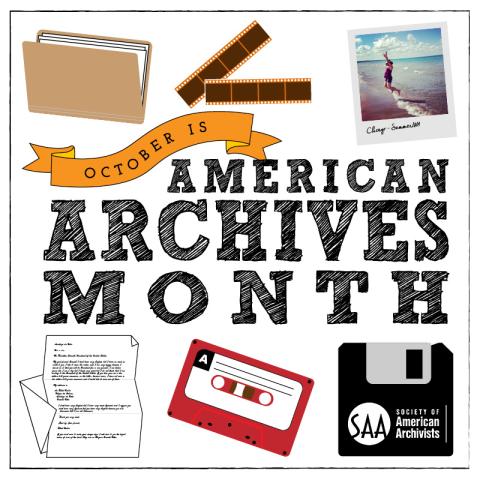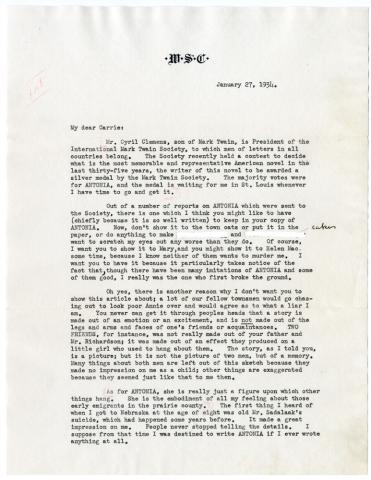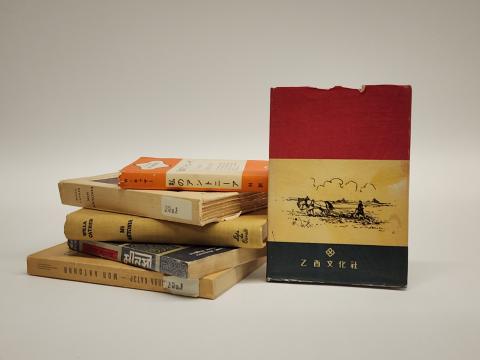
Annotations from the Archives: October is American Archives Month
October is American Archives Month, a time when we educate students and patrons about the value of archives. It’s easy to make the theoretical arguments—and in this space we’ve done it before—about the importance of the historical record not only to our local history but to the very fabric of democracy, since the French Revolution ushered in the idea of centralized, publicly accessible archives.
This year, though, let’s think small. Since we will soon kick off our My Ántonia Big Read activities, let’s start there and focus on the myriad things we’ve learned about the novel—and its inspirations—from the archive. It’s more than you might imagine!
In our organization's earliest days, Mildred Bennett, our founder, spent a great deal of time conducting interviews both in person and by mailed questionnaire. Beginning her research into Willa Cather's life soon after Cather's death, Bennett realized how imperative it was that she reach out to Cather's friends, relatives, and acquaintances. The Mildred Bennett Collection, which contains four boxes of correspondence dating from the late 1940s to the late 1980s, contains hundreds of recollections from those who knew Cather both as a child and as an adult. Letters from Elizabeth Shepley Sergeant, Dorothy Canfield Fisher, Cather's nieces, nephews, and sisters all helped Bennett reconstruct Cather's life for her work, and the one-page surveys completed by the Pavelka children—who became the Cuzak children in the novel—supplied information about the family's immigration to Nebraska and their life on the Webster County farm.
Typed notecards that were collected by researcher John March and shared with Bennett, as well as Bennett's own notecard collection, provided the backbone of Bennett's The World of Willa Cather (1951), which painted a vivid portrait of the author as a girl. Other snippets of information about Red Cloud and its citizens are also contained in those cards. When Dr. Donna Devlin was an intern at the National Willa Cather Center sixty years later, she discovered within those cards a reference to a court case that involved Anna Pavelka, the inspiration for Ántonia. Devlin's research into that case at our local courthouse changed our idea of women's experiences on the frontier, as well as the way we viewed Cather's creation of the Ántonia character.
Of course Cather's own letters are a tremendous resource for our understanding of her novels. In addition to the hundreds of letters that we preserve here in Red Cloud written by Cather, we have a robust collection of Cather family letters that inform Cather's writing. In this 1934 letter to Carrie Miner Sherwood, Cather writes that Ántonia is "really just a figure upon which other things hang." She worries that those who realize that Anna Pavelka inspired the character will come to see Cather as an author who "idealize[s] everything and exaggerate[s] everything." Sherwood's lifelong friendship with Anna Pavelka became an important piece of the puzzle for Bennett. She shared what she learned from Sherwood and from Pavelka herself with generations of readers.

Of course, archives don't only look backward at how the novel was created! Our archives also contains dozens of translations of Cather's work, numerous editions of each one, and the artwork that was featured in My Ántonia. All of these publication-related items make up its own area of study of Cather's work.

We look forward to welcoming you to the National Willa Cather Center's archives—in October or just about any time! We think that this small archive holds many as-yet-unexplored paths that will enhance or disrupt our reading of My Ántonia. To make your visit, you can schedule an appointment or email our archivist at ttucker@willacather.org
